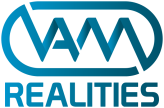
Full project title
Immersive Gamifizierte Lernumgebungen für den Anlagen- und Maschinenbau
Project acronym
IMMERSE2LEARN
Coordinator/applicant
FTK - Forschungsinstitut für Telekommunikation und Kooperation e. V.
Country of coordinator’s
or applicant’s residence
or applicant’s residence
Germany
Contact person
Dominic Heutelbeck
E-mail address
Programme/fund
EFRE.NRW
Project duration
01.04.2018 - 31.03.2021
Project weblinks
EU project showcase![]()
Project description
Immerse2Learn brings methods of the computer games and 3D animation industry into the domain of mechanical and plant engineering to realize innovative and standardized tools and content for the further education of skilled workers.
The use of game technologies, gamification and interaction design coupled with the integration of eLearning systems opens up new sales markets for the computer game industry for its creative and technical services and products. The creation of individual learning contents is to be simplified to such an extent that at the end of the project there will be established value chains that enable the marketing of the results. Within the scope of this project, an AR/VR toolset, a software architecture, a 3D object repository, the user interface in AR and VR for the learners, and the authoring tools for the teachers and participating AR/VR agencies and software publishers will be developed for this purpose.
Mechanical and plant engineering companies need to support their global operations through the global presence of their workforce. The assembly, commissioning, and maintenance of high-efficiency equipment, such as packaging and filling lines, must be performed by qualified and experienced local personnel. Due to the globalization of markets, highly qualified employees are now active worldwide and can hardly be brought together at the same time in one place for further training and instruction in new technologies and products.
The shortage of time for further training measures poses a challenge for future teaching methods, means and communication technologies. The creation of online courses with today's means is time-consuming and often difficult due to the lack of a direct link to the development tools for new plants. This is where the project should start and create a standardized basis for the development of such learning content.
With the given challenges in the field of corporate training and the growing use of VR/AR visualization technologies in communication, these technologies are also suitable for the educational context.
Besides the need to integrate VR/AR systems into existing learning environments based on learning management systems (LMS) by means of identifying, producing, and delivering appropriate learning content based on learning objectives and corresponding target competency profiles, the challenges lie in the fact that from an engineering process the data and information should be transformed into interactive, immersive, pedagogically prepared teaching/learning content with clear teaching/learning objectives and corresponding target competency profiles of the trained employees. In doing so, the path of technological standardization must be clearly followed in order to keep the costs for production, administration, access, and use of the individual teaching/learning content moderate and to ensure the flexible as well as long-term re-usability of the same.


